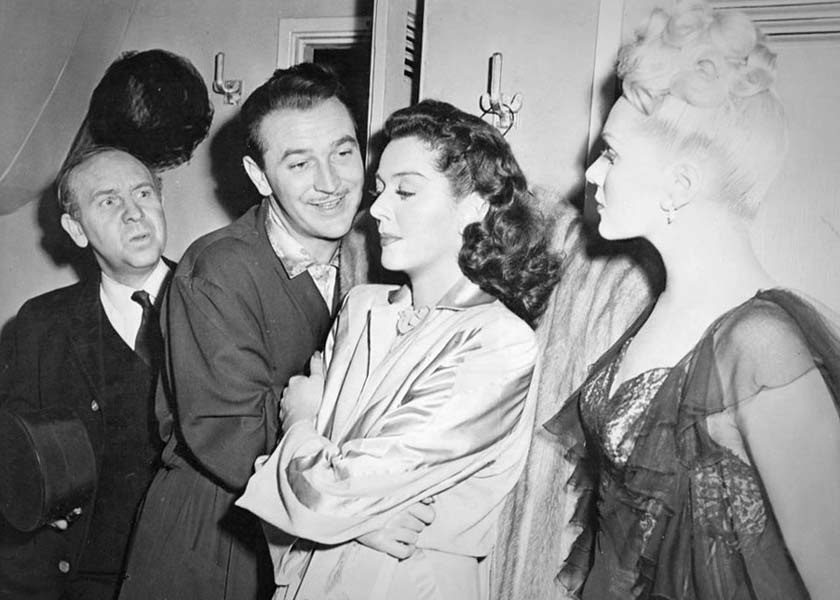Synopsis
A psychiatrist (Russell) is wooed by a cartoonist (Bowman), who has fallen in love with her at first sight after he accidentally knocked her down. Although the psychiatrist is unresponsive to his courtship for most of the film, she eventually yields to his pursuit, and they plan to marry.
Discussion
She Wouldn't Say Yes is a tame romantic comedy. The romantic tension between Russell and Bowman is weak, and the comedy is mild. The film does have a nice example of meeting cute: in a train ticket office, Bowman accidentally knocks Russell flat, bangs her nose, and causes her to miss a chair and sit on the floor. Russell's character is a successful and independent woman, but she is rather prim and lacks interest in men. The cartoonist has to overcome her reluctance to break into her solitary life. The possibility that a woman would want to remain completely independent and not marry was not considered in a 1945 film.
She Wouldn't Say Yes makes an interesting contrast to
She Had to Say Yes (1933)
relative to pre- and post-Code romantic films. In the 1933 film, made when the
Motion Picture Production Code was not being enforced, the male characters are
obviously after sex, and distrust a woman who professes innocence.
In the
1945 film, which was forced to adhere to the strict moral guidelines
of the
Production Code, the virginity and unavailability of the unmarried psychiatrist
(who writes in a tell-all book only about kissing the men she meets) is not in
question. The sexual innuendo which pervades She Had to Say Yes is
also absent. Bedroom encounters in She Wouldn't Say Yes are likewise
mildly sexy, but suggestiveness is kept to a minimum. The cartoonist visits the
psychiatrist's bedroom, even sits on her bed, but then soon leaves. In
She Had to Say Yes, the nominal hero
of the film comes close
to raping the heroine before changing his mind.
The two film's endings further illustrate the differences between pre- and post-Code films. In She Wouldn't Say Yes, the cartoonist gets no further than standing on the ladder to the upper berth where the psychiatrist is lying. A marriage acknowledged by both must be performed before he can enter. At the end of She Had to Say Yes, by contrast, the implication is that the couple will celebrate their wedding night before they are actually married.

